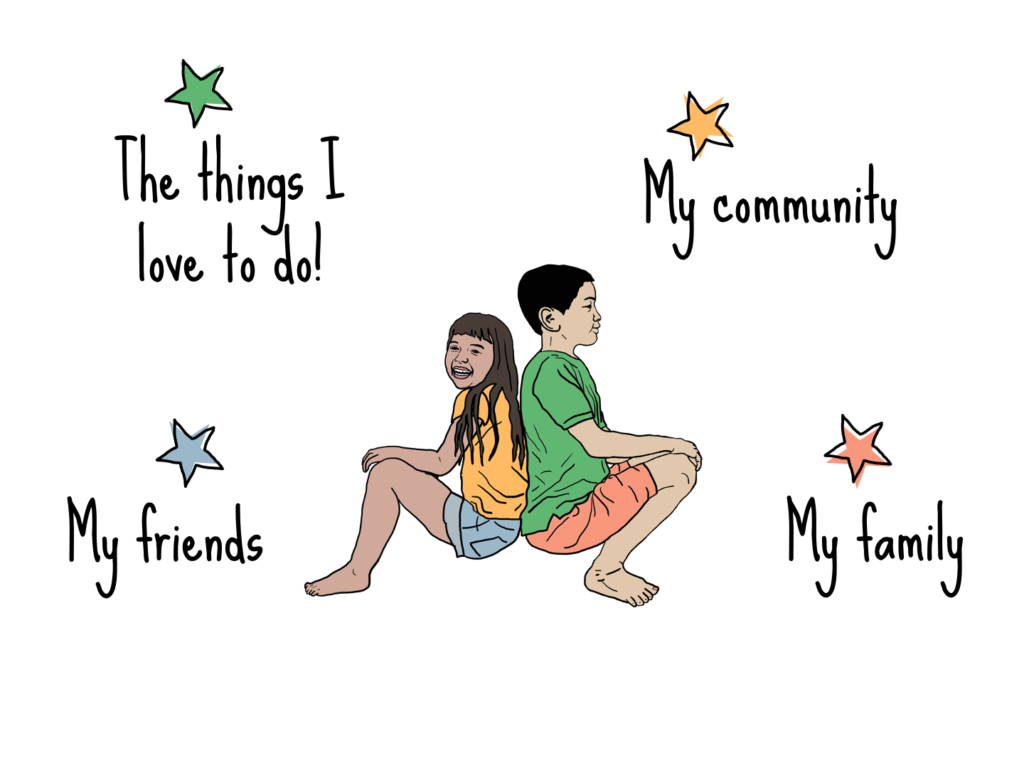
Finally, another way to promote a healthy sense of self in children is to ensure that children live in situations where they feel safe, included, and affirmed. This means fostering healthy and supportive families and communities. Children thrive when they are surrounded by people who love and support them. This provides a sense of belonging and security, which are keys to a healthy sense of self. Being a part of a larger community provides role models for children, different sorts of friends and experiences, opportunities for exploration and learning and growth, and spaces where they feel they belong. All of these enrich a child’s life even as they provide that child with the opportunities they need to develop a strong and healthy sense of self.
To support a healthy sense of self in children it is critical to support the communities where they feel safe, included, and valued.
-
- Academic sense of self
- how a person thinks of themself as a student
- Bias
- the belief that some people or ideas are better than others, usually resulting in unfair treatment
- BIPOC
- Black, Indigenous, people of color
- Conscious
- thoughts or feelings that we are aware of
- Growth mindset
- the belief that, with effort, you can learn and achieve new things.
- In-group preference
- the tendency to form close relationships with others in a person’s same groups
- Self-esteem
- a cluster of characteristics, such as feeling confident, having pride in oneself, and a sense of self-worth
- Sense of self
- how a person thinks and feels about their self
- Stereotype
- a widespread belief that a person must have a trait because they belong to a particular group
- Unconscious
- thoughts or feelings that we are unaware of